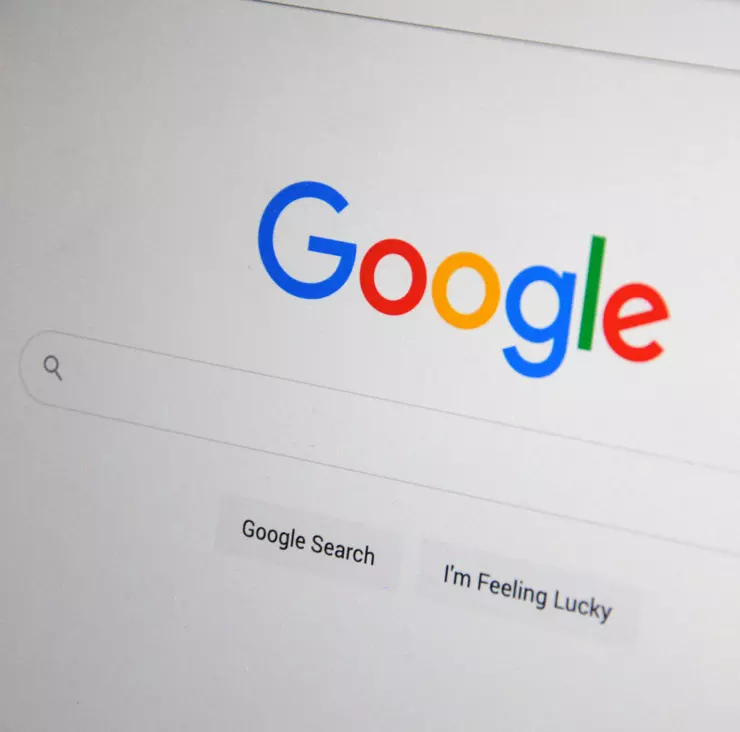Brand-Led SEO: Why Google wants to see more than keywords
SEO isn’t just about keywords anymore. Learn how brand strength, digital PR, and entity signals now shape rankings — and how to build visibility that lasts.

Keywords Aren’t Enough Anymore
There was a time when you could outrank anyone with the right keyword density, a few backlinks, and a technically clean site. That time has passed. In today’s search landscape, brand-led signals increasingly separate who ranks from who gets ignored.
It’s not that keywords have stopped mattering; they still do. But they’re no longer the deciding factor. Google wants to know who is behind the content, not just what it says.
If your SEO strategy still revolves around stuffing target phrases into optimised pages, you’re missing the bigger picture, and likely losing visibility to brands that have mastered what Google’s really looking for: trust, authority, and presence.
What Is Brand-Led SEO?
Brand-led SEO is the approach of building search visibility through entity strength rather than just content optimisation. In simple terms, Google ranks brands, not just websites.
This includes:
- Consistent mentions across the web
- Association with topics, products, and sectors
- Clear authorship, credentials, and context
- A strong reputation, reflected in reviews, citations, and coverage
In Google’s language, it’s about E-E-A-T: Experience, Expertise, Authoritativeness, and Trustworthiness. And while it doesn’t have a direct ranking score, it’s clear that entities with stronger brand signals outperform faceless content mills, no matter how technically “perfect” the page is.
Why This Shift Happened
Google has been under pressure from spam, from AI, and declining trust in its results. To continue delivering useful, safe, and relevant answers, it has had to evolve from a keyword matchmaker to a credibility assessor.
This means that:
- An unknown site with decent content will lose to a known brand with average content
- A site with deep topical authority (even in a niche) will outrank generalist domains
- A business with press, podcasts, and partnerships will beat one with “optimised blogs”
It’s not fair. But it is real. And it’s how the algorithm protects itself from manipulation.
What Brand-Led SEO Looks Like in Practice
1. You’re Showing Up in More Than Just Your Own Content
If your brand is being referenced in articles, quoted in roundups, or linked in forums, that’s a signal. Not just of popularity, but of topical relevance.
And the more often your brand appears next to key concepts, the more Google associates you with those concepts.
Think:
“This agency knows PPC because others talk about them in PPC contexts.”
2. You Have a Distinct Author or Entity Behind Your Content
Ghostwritten blogs with no bylines? Dead weight.
In brand-led SEO, you need:
- Named authors (especially in regulated or technical fields)
- Bios that show why the author has credibility
- Consistent presence across LinkedIn, event talks, podcasts, or third-party guest content
Google’s not just crawling the page. It’s asking: “Who is this? Should I trust them?”
3. You’re Investing in Digital PR and Off-Page Mentions
Links still matter. But so do mentions without links.
If your brand is referenced by industry sites, publications, and podcasts (even without a backlink) you’re building brand authority. These citations strengthen your entity in Google’s Knowledge Graph, making your content easier to rank across the board.
4. Your Website Reflects a Real Business
This one’s surprisingly simple. Google has been shown to reward:
- Clear About pages
- Contact info with verifiable addresses
- Visible leadership/team members
- Outbound links to credible sources
SEO isn’t about tricking a machine anymore. It’s about signalling trust like a real brand would.
The Benefit? SEO That Compounds
When you build brand authority, everything gets easier:
- Your content ranks faster
- Your site is crawled more frequently
- You’re more likely to be featured in AI-generated answers (GEO)
- Your CTR improves because users recognise your name
It’s not just about “ranking for keywords.” It’s about building a brand that Google and real people trust implicitly.
Final Word
Brand-led SEO doesn’t replace technical SEO or content optimisation. It enhances them.
The goal isn’t to forget about keywords, it’s to make your brand the natural answer to the queries that matter. And that starts with being present, credible, and consistently visible across the digital landscape.
Because in the new world of search, Google isn’t asking who’s optimised. It’s asking who’s trusted.



